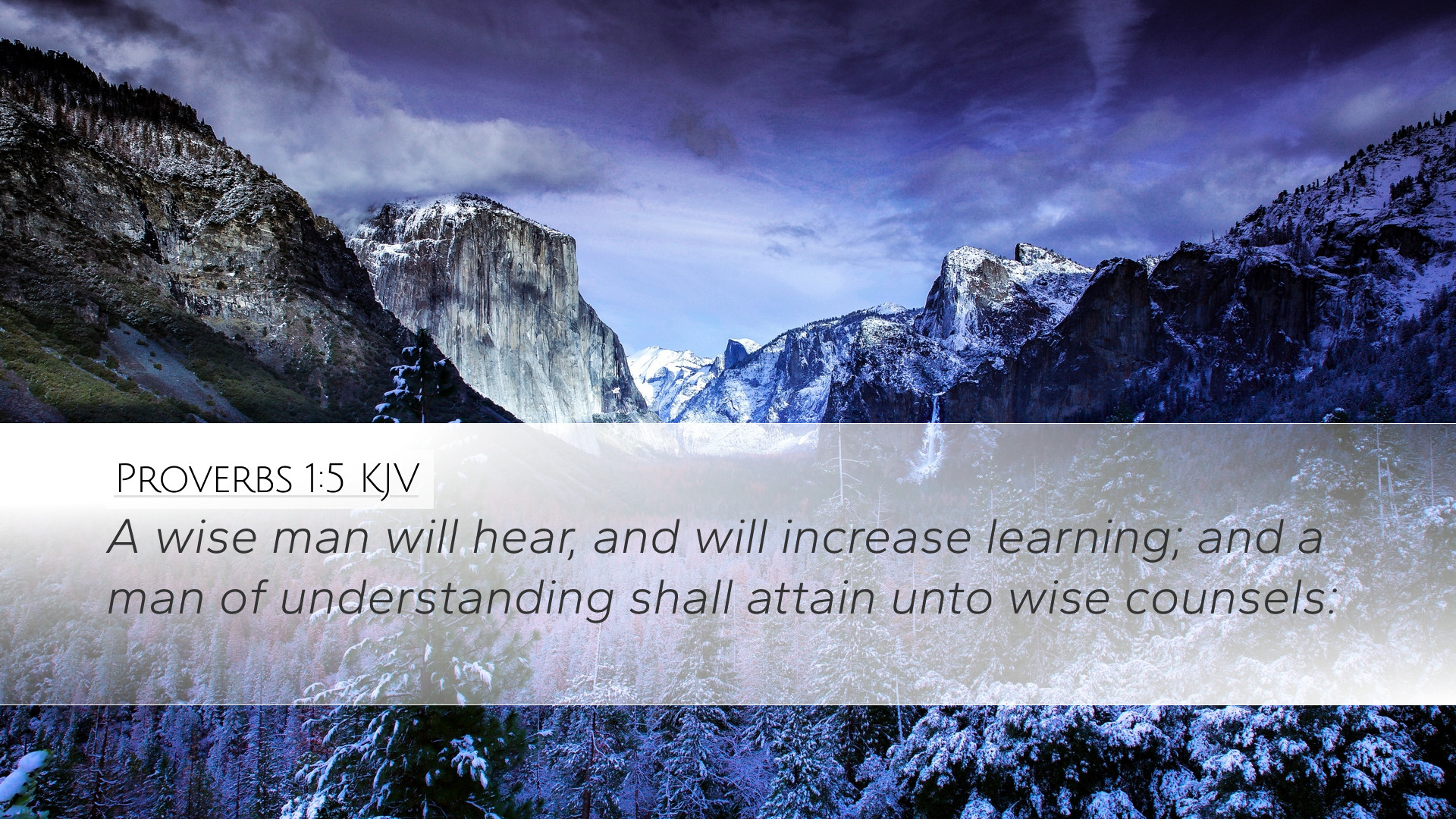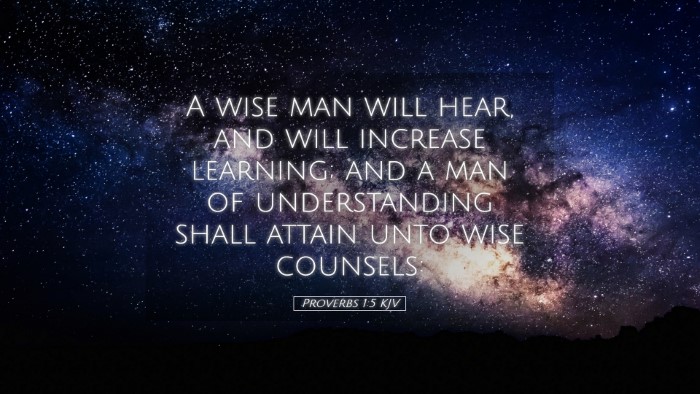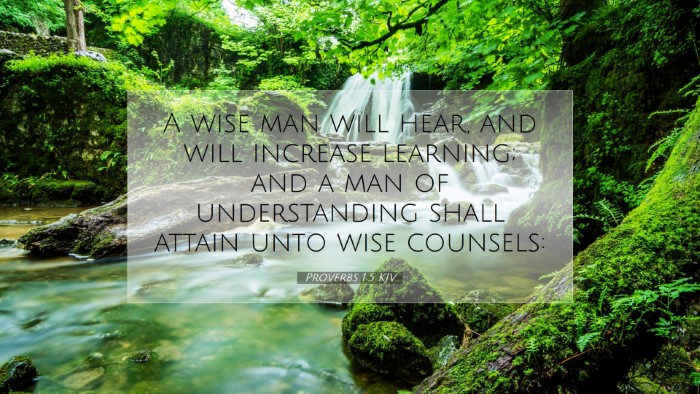Commentary on Proverbs 1:5
Verse: "A wise man will hear, and will increase learning; and a man of understanding shall attain unto wise counsels."
Introduction
The verse Proverbs 1:5 serves as a profound introduction to the principles of wisdom and learning that permeate the Book of Proverbs. It emphasizes the importance of receptivity to knowledge and the pursuit of understanding. This commentary synthesizes insights from various public domain sources to elucidate these themes and their practical implications for spiritual growth and leadership.
Contextual Background
Proverbs was written primarily by King Solomon, the son of David, who was noted for his wisdom. These verses were designed not only to provide moral instruction but also to lead the reader toward a deeper relationship with God. Understanding this context is crucial for interpreting the verse's emphasis on wisdom and counsel.
Insights from Matthew Henry
Matthew Henry highlights that the wise man is characterized by two main actions: hearing and learning. He points out that wisdom is an active pursuit, and it requires humility to listen and to assimilate what is learned.
- Listening: Henry emphasizes the necessity of being a good listener, suggesting that wisdom begins with attentiveness to truth.
- Increasing Learning: The wise does not merely accumulate knowledge; he seeks to increase it continually, indicating an ongoing process of spiritual and intellectual growth.
- Attaining Wise Counsel: The 'man of understanding' recognizes the value in seeking advice from others, demonstrating that wisdom acknowledges the limits of personal insight.
Insights from Albert Barnes
Albert Barnes provides additional depth by exploring the Hebrew semantics of the terms used. He elaborates on what it means to “hear,” linking it to a deeper sense of understanding rather than mere auditory reception.
- Dynamic Hearing: Hearing is a proactive activity—indicative of a heart that is open and responsive to divine instruction.
- Wise Counsel: Barnes emphasizes the communal aspect of wisdom, where obtaining counsel is an act of humility and recognition that wisdom often comes from collective experiences.
- Implication for Leaders: In pastoral and educational settings, the ability to learn and grow through counsel is crucial for effective leadership.
Insights from Adam Clarke
Adam Clarke offers a detailed examination of the text, underscoring the relationship between wisdom and learning as foundational to one’s spiritual journey.
- Continuous Growth: Clarke stresses that wisdom is not static; each learned lesson opens the door to further knowledge, akin to ascending a staircase toward higher understanding.
- Personal Responsibility: Each individual is responsible for their own pursuit of wisdom, compelling readers to actively engage in their learning journey.
- Mindset for Learning: He highlights the importance of maintaining a posture of curiosity and openness, essential for grasping profound truths.
Theological Implications
This verse encapsulates significant theological themes relevant to both personal and communal faith walks. The wise man’s dedication to perpetual learning and counsel speaks to the Christian's call to discipleship and spiritual maturity.
- Discipleship: The act of hearing and increasing learning reflects the essence of being a disciple of Christ, where one actively follows Jesus' teachings.
- Community and Counsel: Interpersonal relationships in the faith community allow for mutual growth. Seeking wisdom in counsel fosters unity and shared learning.
- God’s Wisdom: Ultimately, the pursuit of wisdom is a pursuit of God Himself, who reveals His wisdom through Scripture and spiritual leaders.
Practical Applications
For pastors, students, theologians, and scholars, Proverbs 1:5 presents several practical applications:
- Commit to Lifelong Learning: Embrace a mindset that actively seeks knowledge through reading, teaching, and discussion.
- Cultivate Listening Skills: Develop the ability to listen not just to respond but to truly understand the counsel being given.
- Value Community Wisdom: Foster relationships that support shared insight, ensuring a diverse exchange of ideas and wisdom.
- Seek God’s Guidance: In all matters, make prayer an integral part of the decision-making process, inviting divine wisdom into counsel.
Conclusion
Proverbs 1:5 invites us into a profound engagement with wisdom that transcends mere knowledge accumulation. It challenges believers to be active participants in their learning journeys while remaining open to counsel and wisdom from others. In doing so, we reflect God’s design for a community rooted in love, understanding, and growth in the faith.


